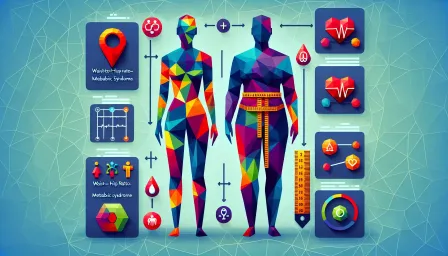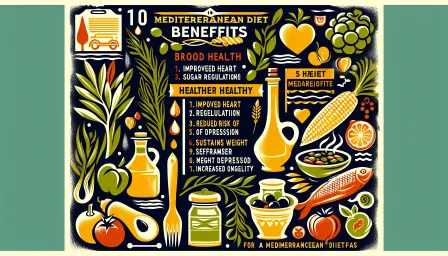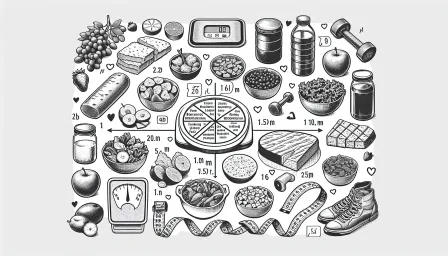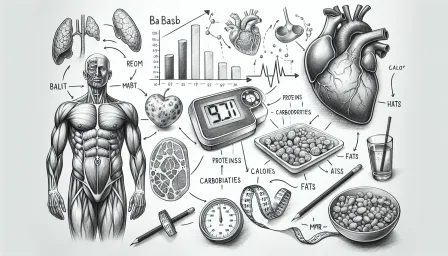The Hidden Side Effects of a Low-Carb Diet You Need to Know

Discover the hidden side effects of a low-carb diet. This well-researched article highlights potential risks, providing valuable insights for those considering this popular eating plan.
Low-carb diets have surged in popularity for their promise of rapid weight loss, better blood sugar control, and enhanced cardiovascular health. While these benefits seem appealing, it's crucial to understand the less publicized side effects of a low-carb diet. This comprehensive guide delves into the hidden repercussions, helping you make an informed decision about whether this eating approach is right for you.
Initial Side Effects: The Keto Flu
One of the immediate consequences of switching to a low-carb diet is the onset of "Keto flu," a collection of symptoms that mimic the flu. These include headaches, fatigue, dizziness, nausea, and irritability. The Keto flu occurs as your body transitions from burning carbs to burning fat for energy, a process known as ketosis.
How to Mitigate Keto Flu
To alleviate these symptoms, ensure you stay well-hydrated, maintain electrolyte balance by consuming enough sodium, potassium, and magnesium, and consider easing into the diet rather than making abrupt changes.
Long-Term Nutritional Deficiencies
A strict low-carb diet can limit your intake of essential nutrients normally obtained from carbohydrate-rich foods such as fruits, vegetables, and grains. These can include fiber, vitamins (especially B vitamins), and minerals.
Addressing Nutritional Shortfalls
To counteract potential deficiencies, focus on incorporating low-carb vegetables like spinach and broccoli, which provide necessary vitamins and minerals. You might also consider taking a multivitamin supplement after consulting with a healthcare provider.
Potential Digestive Issues
Low-carb diets can disrupt normal digestive processes, leading to problems such as constipation. This is primarily because of the reduced fiber intake from eliminating whole grains, fruits, and certain vegetables.
Improving Digestive Health
To prevent constipation, ensure you're eating fiber-rich, low-carb foods such as avocados, chia seeds, and flaxseeds. Also, adequate hydration plays a critical role in maintaining digestive regularity.
Impact on Physical Performance
Carbohydrates are a primary energy source, especially for high-intensity workouts. Athletes and individuals engaged in strenuous activities might experience a decline in performance and endurance on a low-carb diet.
Optimizing Performance on Low-Carb Diets
Tailoring your diet to include enough healthy fats and proteins can compensate for the lack of carbs. Additionally, targeted carbohydrate intake around workout sessions (also known as carb cycling) can help maintain performance levels.
Mental Health Implications
Carbohydrates also play a crucial role in mental well-being by influencing the production of serotonin, a neurotransmitter associated with mood regulation. A low-carb diet might lead to feelings of lethargy, depression, and irritability for some individuals.
Maintaining Mental Health
Incorporating omega-3 fatty acids found in fish oil, flaxseeds, and walnuts can help support brain health. If mood changes persist, consult a healthcare professional for further guidance.
Impact on Bone Health
Recent studies suggest that low-carb diets could negatively affect bone health by altering calcium metabolism. This may increase the risk of osteoporosis in the long term.
Protecting Bone Density
Including calcium-rich foods and taking supplements may help counteract this effect. Regular weight-bearing exercises are also beneficial for maintaining bone density.
Social and Lifestyle Considerations
Adhering to a low-carb diet can also have social and lifestyle challenges. Dining out, family meals, and social gatherings can become complicated, leading to feelings of isolation and difficulty maintaining the diet long-term.
Navigating Social Challenges
Planning ahead and finding low-carb alternatives to your favorite dishes can help ease this transition. Open communication with family and friends about your dietary choices can also foster understanding and support.
Conclusion
While a low-carb diet offers numerous benefits, it's essential to be aware of and prepare for its hidden side effects. By understanding and addressing these potential issues, you can make a more informed decision and take proactive steps to safeguard your overall health. Always consult with healthcare providers before embarking on significant dietary changes to tailor an approach that best suits your individual needs.



























